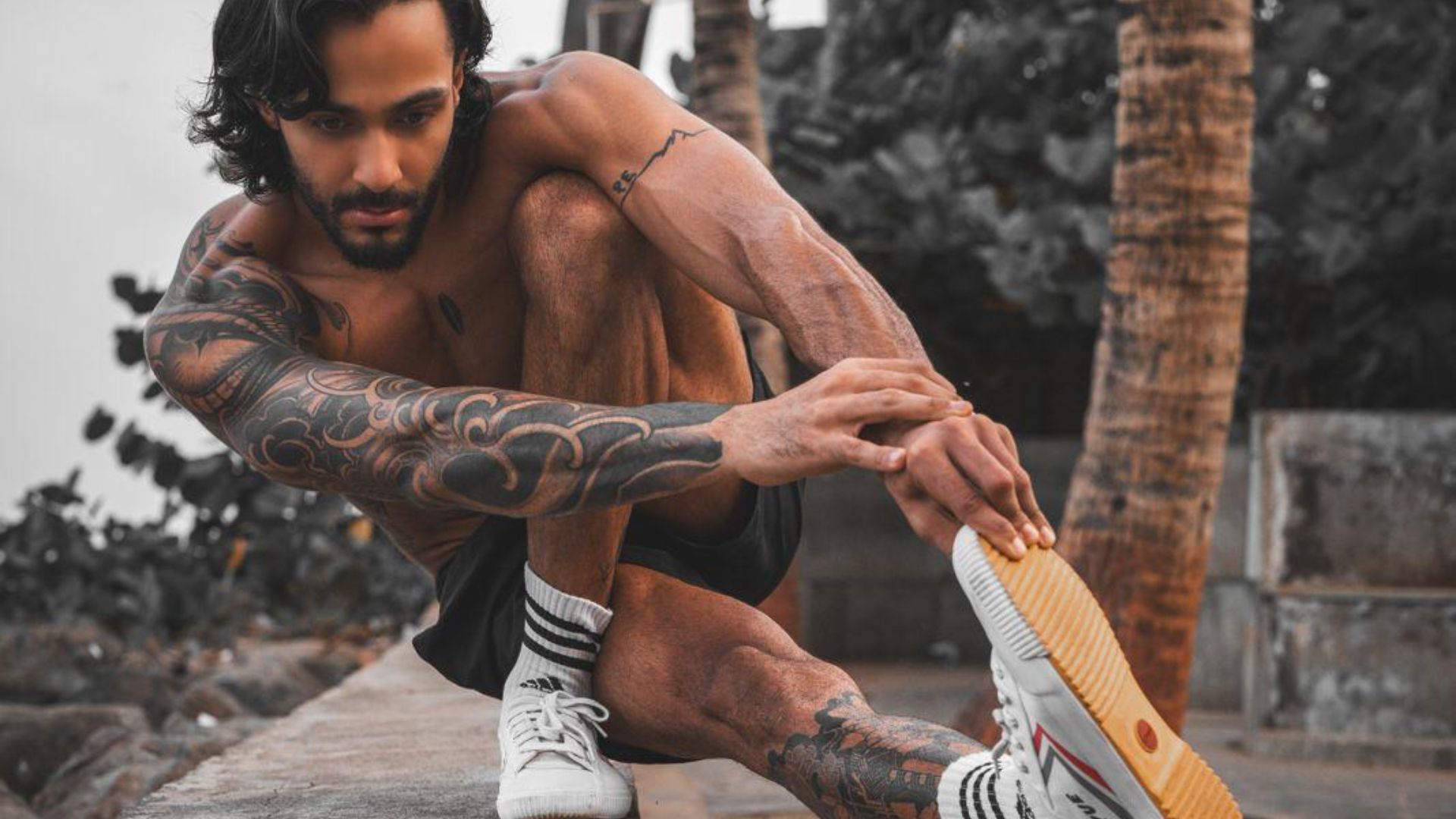Let’s be honest—if you’re in your twenties and your knees creak every time you get up, you’re not alone. And you’re probably doing everything wrong. Robin Behl sees it all the time. As co-founder of TRIBE and the man behind the physical transformations of multiple next-gen actors, Behl’s work sits at the intersection of movement philosophy, injury rehab, and elite fitness programming. He’s trained at Shaolin monasteries, lived with jiu-jitsu fighters in Mexico, and summited Manaslu after recovering from a double knee surgery.
So when he says your knee pain isn’t really about your knees? You might want to sit up straighter—and read on.
1. Fix your hips before blaming your knees
In most cases, knee pain is just a symptom of poor hip mobility. “It’s the hips that go first,” says Behl. “When they lock up, your ligaments and tendons take on the stress—and your knees suffer.” A tight posterior chain means your body’s compensating with every step. Start with hip openers and internal/external rotation drills to get that range back.
2. Mobilise before you brutalise
Behl’s golden rule: if you can’t move well, you shouldn’t be loading weight. “If you’re forcing a tight, restricted joint to move quickly—during sport, lifting, even just twisting—you’re setting yourself up for injury.” Prioritise prehab: gentle thoracic spine rotations, banded distractions, controlled articular rotations. Think of it as brushing your teeth—but for your joints.
3. Don’t ignore your IT band
One of Behl’s simplest diagnostic hacks? Work the IT band. “I’ve had clients limp into the studio and walk out pain-free just from a basic IT band drill,” he says. “People look at me like I’ve done magic.” You haven’t. But you’ve probably never foam rolled your lateral thigh in your life.
4. Learn to isolate, then integrate
According to Behl, most guys skip straight to barbell squats without knowing how to control their individual joints. “We’re one connected system from head to toe,” he says. “But unless you know how to isolate—your hip, ankle, knee—you won’t know where your weakness is.” Start with single-leg work and joint stability drills. Only then should you start stringing compound movements together.
5. Strengthen into your end ranges
“Stretching alone won’t save you,” Behl warns. “I want you strong in the deepest part of your squat—not just hanging there like a loose rubber band.” Instead, he suggests loading your mobility. Think pause squats, Cossack squats, Jefferson curls, and isometric holds. If it feels sketchy, that’s the point—you’re building control where you’re weakest.
6. Recover like your knees depend on it (because they do)
You don’t have to be prepping for a film shoot to care about recovery. “We do weekly ice plunges, sauna sessions, and lymphatic drainage massages for Ibrahim [Ali Khan] even when he’s not filming,” Behl says. “You want your body to reorganise itself regularly.” In your case, that might just mean sleeping better, stretching more, and giving your joints the respect they’ve been quietly begging for.






